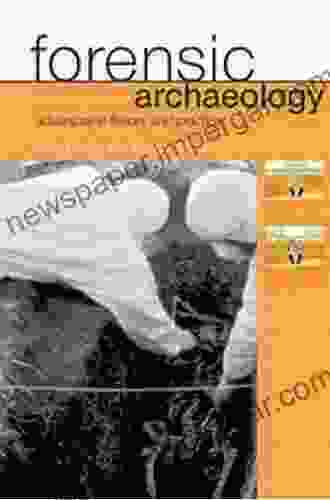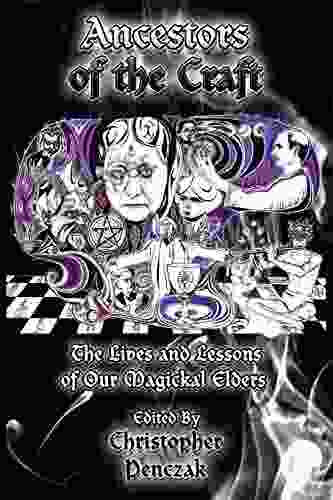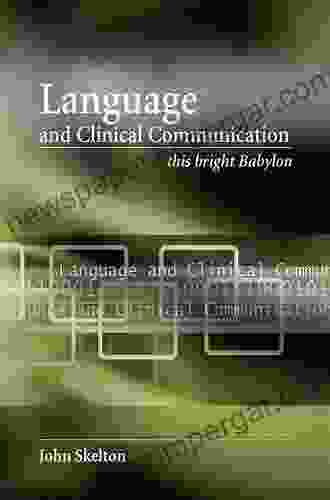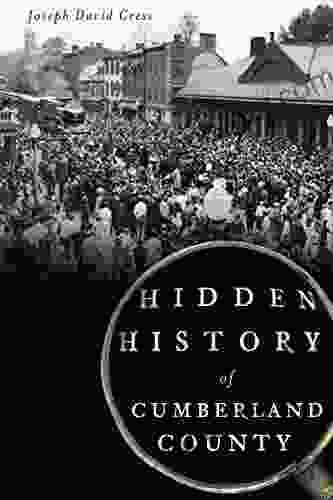Advances In Theory And Practice Forensic Science: Unlocking the Secrets

5 out of 5
| Language | : | English |
| File size | : | 9602 KB |
| Text-to-Speech | : | Enabled |
| Screen Reader | : | Supported |
| Enhanced typesetting | : | Enabled |
| Word Wise | : | Enabled |
| Print length | : | 388 pages |
In the realm of crime investigation, forensic science stands as a beacon of truth, providing irrefutable evidence and aiding in the pursuit of justice. This field, where scientific methods meet the intricacies of criminal law, has witnessed remarkable advancements in recent years, revolutionizing the way we solve crimes.
The Genesis of Forensic Science
The origins of forensic science can be traced back to ancient civilizations, where skilled individuals employed their knowledge to unravel mysteries surrounding unexplained deaths and crimes. However, it was not until the 19th century that forensic science emerged as a distinct discipline, driven by the pioneering work of scientists like Sir Arthur Conan Doyle, known for his iconic detective, Sherlock Holmes.
In the early 20th century, forensic science gained further momentum with the establishment of specialized units dedicated to scientific crime investigation. These units played a pivotal role in solving high-profile cases and solidifying the significance of forensic evidence in the courtroom.
Core Techniques of Forensic Science
Forensic science encompasses a vast array of techniques and disciplines, each contributing to the analysis and interpretation of evidence. Some of the core techniques include:
- Crime Scene Investigation: The meticulous examination and documentation of a crime scene to gather physical evidence, identify potential suspects, and reconstruct the events that occurred.
- DNA Profiling: The analysis of DNA samples to identify an individual, connect them to a crime scene or victim, and exonerate the innocent.
- Ballistics: The study of firearms, ammunition, and their use in crimes, including trajectory analysis, weapons identification, and gunshot residue examination.
- Serology: The analysis of blood and other bodily fluids to determine blood types, identify individuals, and detect the presence of drugs or toxins.
- Trace Evidence: The examination of minute particles, such as fibers, hairs, glass fragments, and soil, to link them to a crime scene, suspect, or victim.
- Forensic Pathology: The examination of deceased individuals to determine the cause and manner of death, including the detection of injuries, diseases, and poisoning.
- Forensic Anthropology: The study of human skeletal remains to determine the identity, age, sex, and ancestry of deceased individuals, often in cases involving unidentified bodies or mass disasters.
Forensic Science in Action
Forensic science plays a crucial role in every stage of criminal investigation, from gathering and analyzing evidence to presenting findings in court. Its applications span a wide range of crimes, including homicides, sexual assaults, robberies, and drug trafficking.
The analysis of bloodstain patterns, for example, can help reconstruct the events leading up to a crime and determine the position of individuals involved. DNA profiling has become an invaluable tool in identifying suspects, exonerating the innocent, and resolving cold cases.
Ethical Considerations in Forensic Science
While forensic science provides powerful tools for crime investigation, it is essential to consider the ethical implications of its use. Proper handling and analysis of evidence are crucial to ensure the integrity and reliability of findings.
Forensic scientists must also be aware of potential biases and limitations in their methods and interpretations. Maintaining objectivity and transparency throughout the process is paramount to upholding the credibility of forensic evidence.
Current Trends and Future Directions
Forensic science is continuously evolving, with advancements in technology and research leading to the development of new techniques and approaches. Some current trends include:
- Digital Forensics: The examination and analysis of digital evidence, such as computer files, mobile phone data, and social media accounts, to uncover digital footprints and recover crucial information.
- Rapid DNA Analysis: Portable, rapid DNA analysis systems that allow for on-site DNA profiling, speeding up the identification process and providing real-time investigative leads.
- Forensic Genomics: The application of genomic technologies to analyze DNA samples for a deeper understanding of an individual's genetic makeup, disease susceptibility, and response to environmental factors.
Forensic science stands as a testament to the power of scientific knowledge in the pursuit of justice. Its techniques and applications continue to evolve, providing invaluable insights into the complexities of crime and helping to unravel the secrets that lie at the heart of criminal investigations. As we delve deeper into the cutting-edge advancements in this field, we can expect even greater breakthroughs that will revolutionize the way we solve crimes and ensure the fair and equitable administration of justice.
For those seeking a comprehensive exploration of this captivating field, we highly recommend the book "Advances In Theory And Practice Forensic Science." This comprehensive volume delves into the historical foundations, core techniques, ethical considerations, and future directions of forensic science, offering a wealth of knowledge and insights for professionals, students, and anyone fascinated by the world of crime investigation.
5 out of 5
| Language | : | English |
| File size | : | 9602 KB |
| Text-to-Speech | : | Enabled |
| Screen Reader | : | Supported |
| Enhanced typesetting | : | Enabled |
| Word Wise | : | Enabled |
| Print length | : | 388 pages |
Do you want to contribute by writing guest posts on this blog?
Please contact us and send us a resume of previous articles that you have written.
 Book
Book Novel
Novel Page
Page Chapter
Chapter Text
Text Story
Story Genre
Genre Reader
Reader Library
Library Paperback
Paperback E-book
E-book Magazine
Magazine Newspaper
Newspaper Paragraph
Paragraph Sentence
Sentence Bookmark
Bookmark Shelf
Shelf Glossary
Glossary Bibliography
Bibliography Foreword
Foreword Preface
Preface Synopsis
Synopsis Annotation
Annotation Footnote
Footnote Manuscript
Manuscript Scroll
Scroll Codex
Codex Tome
Tome Bestseller
Bestseller Classics
Classics Library card
Library card Narrative
Narrative Biography
Biography Autobiography
Autobiography Memoir
Memoir Reference
Reference Encyclopedia
Encyclopedia John J Mcdermott
John J Mcdermott Jon Meacham
Jon Meacham John Williamson
John Williamson Jonas Michanek
Jonas Michanek John Fisher
John Fisher John F Wukovits
John F Wukovits Jonathan Levine
Jonathan Levine Joosr
Joosr John Gillingham Cpa
John Gillingham Cpa Jonathan Shariat
Jonathan Shariat John P Kotter
John P Kotter Joseph T Major
Joseph T Major Jon Marriner
Jon Marriner John R Ferraro
John R Ferraro John Heil
John Heil John Heritage
John Heritage Jonni Good
Jonni Good John T Moore
John T Moore Jonathan Bastable
Jonathan Bastable Joseph J Mistovich
Joseph J Mistovich
Light bulbAdvertise smarter! Our strategic ad space ensures maximum exposure. Reserve your spot today!

 Lawrence BellUnlock the Secrets of Magical Energy Exercises: The Ultimate Guide to Vril...
Lawrence BellUnlock the Secrets of Magical Energy Exercises: The Ultimate Guide to Vril... Danny SimmonsFollow ·19.2k
Danny SimmonsFollow ·19.2k Douglas AdamsFollow ·18k
Douglas AdamsFollow ·18k Deacon BellFollow ·5.3k
Deacon BellFollow ·5.3k Gerald BellFollow ·2k
Gerald BellFollow ·2k Bruce SnyderFollow ·2.5k
Bruce SnyderFollow ·2.5k Dawson ReedFollow ·15k
Dawson ReedFollow ·15k Asher BellFollow ·13.9k
Asher BellFollow ·13.9k Nathaniel HawthorneFollow ·16.8k
Nathaniel HawthorneFollow ·16.8k

 Jake Powell
Jake PowellThe Constitution of the State of Colorado: A Legacy of...
Since its adoption in 1876, the...
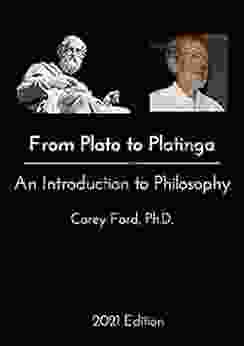
 Devin Ross
Devin RossFrom Plato to Plantinga: A Journey Through the History of...
Philosophy is the study of...
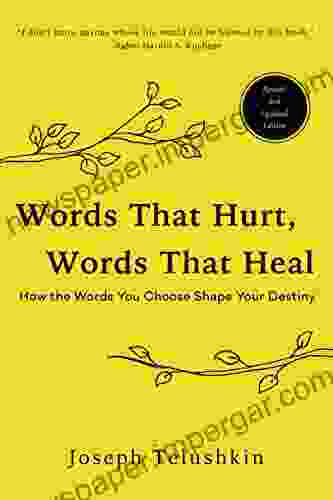
 Robin Powell
Robin PowellWords That Hurt, Words That Heal: The Power of Language...
Words are powerful. They can...

 T.S. Eliot
T.S. EliotTantalize Your Taste Buds with Over 90 Low-Carb Ethnic...
Indulge in a Culinary Adventure with "Over...
5 out of 5
| Language | : | English |
| File size | : | 9602 KB |
| Text-to-Speech | : | Enabled |
| Screen Reader | : | Supported |
| Enhanced typesetting | : | Enabled |
| Word Wise | : | Enabled |
| Print length | : | 388 pages |


